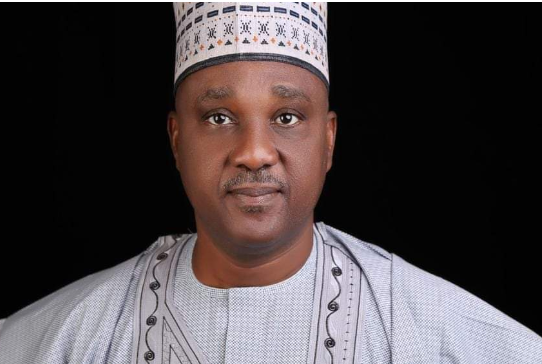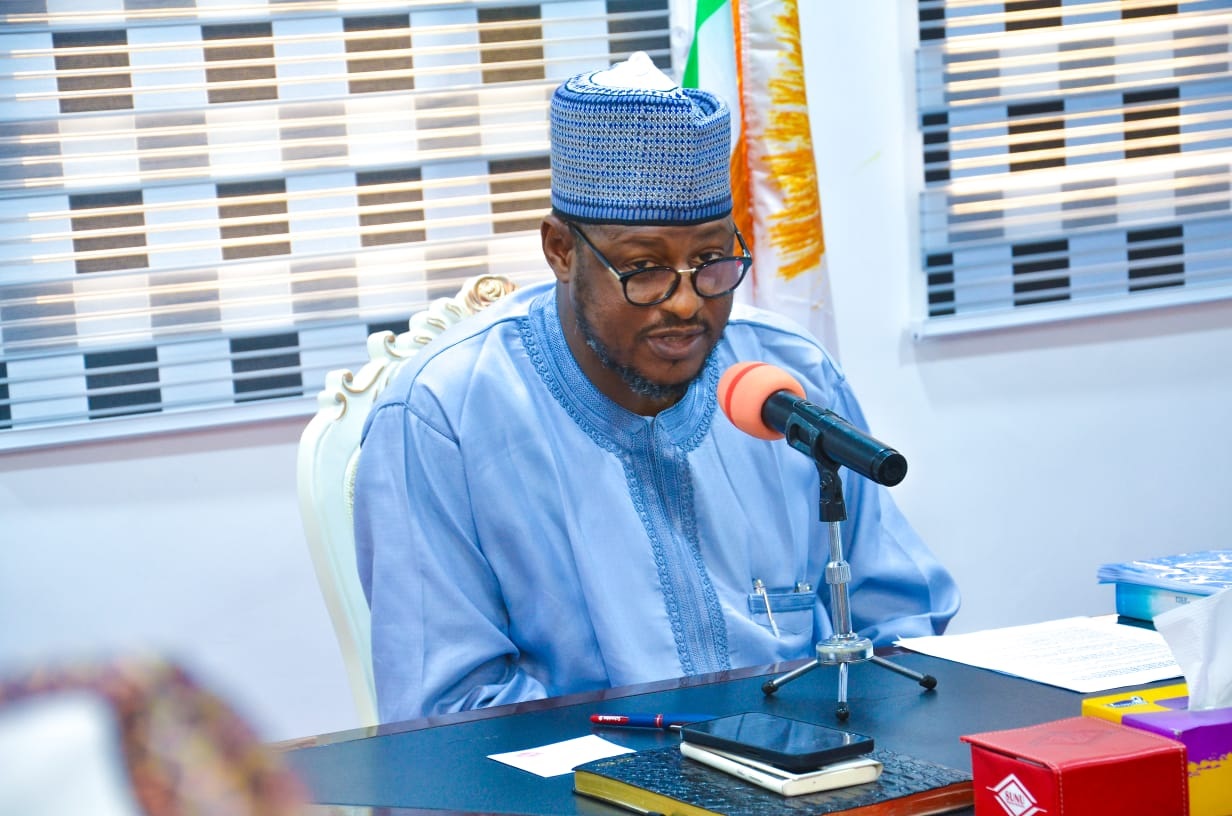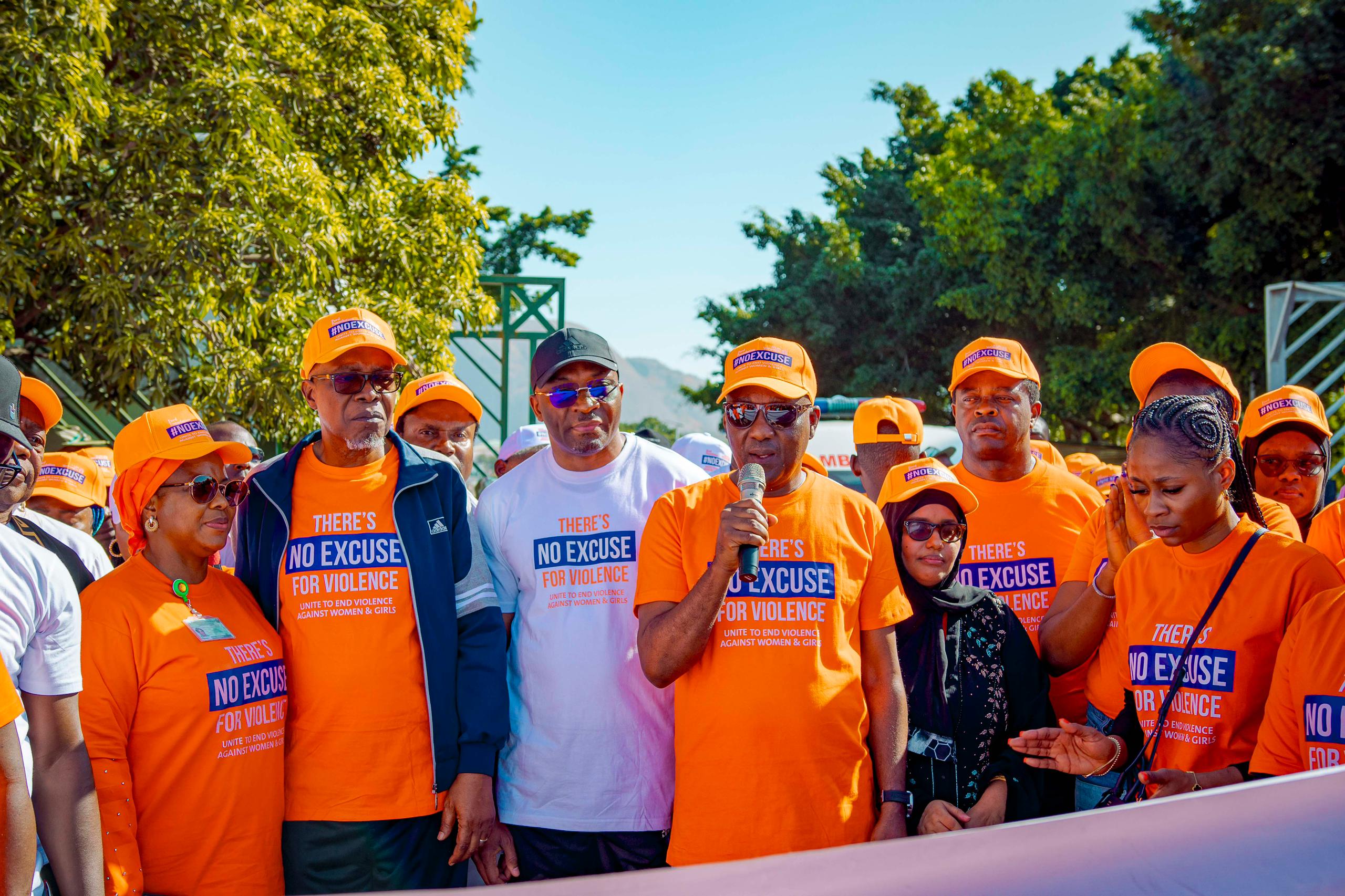News
Reps deny rift between Speaker Abbas, Kalu, says no bribery for committee placement

By Kayode Sanni-Arewa
The Nigerian House of Representatives, has said the dissolution of the Joint Adhoc Committee on Midstream and Downstream Petroleum was done in line with the 1999 constitution of Nigeria and the standing rules of the House.
This was, even as, the Green chamber debunked the insinuations in some quarters that there was love lost between the Speaker, Tajudeen Abbas and his deputy, Benjamin Kalu; and that Members bribed their way to get some juicy Committee placements in the House.
A statement signed on Wednesday by the Spokesperson of the House, Akin Rotimi Jnr, said the action by the leadership was to ensure efficacy, independence, and effectiveness of the investigation.
He stressed that, the House has its internal working mechanisms, “which are enabled by Section 60 of the 1999 Constitution (as amended), which provides that, ‘Subject to the provisions of this Constitution, the Senate or the House of Representatives shall have power to regulate its own procedure, including the procedure for summoning and recess of the House’”.
The Spokesperson contended that, “the leadership of the House reserves the right to disband/dissolve an ad hoc committee whenever the need arises.
“That the action taken by the House to dissolve the Ad Hoc Committee on Oil and Gas Investigation did not contravene any rule of the House or any law of the land;
“That at no time did the House leadership or anybody for that matter received inducement for the appointment of any committee chairman. It was an assignment diligently executed by the Selection Committee of the House between June and July 2023, which has a member from each of the states of the federation;
“That there is no rift whatsoever between the Speaker and the Deputy Speaker regarding this or any matter; the duo enjoys a robust and cordial relationship. The two Presiding Officers also have mutual respect for each other, and will not allow anything to come between them.
“The public should therefore disregard the speculations making the round in some sections of the media”.
The House therefore, implored Journalists to always verify their facts and crosscheck with the appropriate quarters before going to the press, “with information that are nothing but falsehoods dished out as stories”.
The Green chamber, while reiterating cordial relationship between the two Presiding Officers and peace amongst Members; stressed that it operates open door policy and remains open to the Nigerian public and the media regarding its activities.
News
Katsina gov presents N682bn 2025 budget to State Assembly

Governor Dikko Radda of Katsina State on Monday presented the State’s 2025 Budget Proposal to the state House of Assembly.
This is the second full year budget the governor is presenting to the House, which is in the sum of N682,244,449,513.87, covering Recurrent Revenue and Expenditure.
The Budget’s Recurrent Expenditure stands at the sum of N157,967,755,024.36 representing 23.15% while, Capital Expenditure stands at N524,274,694,489.51 representing 76.85%.
The Governor in his speech, announced that, the total of this budget when compared with that of the 2024, has an increase of N200,535,619,501.61, representing 40% increase.
The Governor, at the beginning of his speech, assured the House that his administration has achieved many of its goals and is on course to meet and exceed its targets.
He insisted that his administration has successfully reversed the tide of insecurity which severely threatened the peaceful co-existence of people in the State.
“Many of our local governments have been restored to normalcy while pushing the bandits to the fringes of the forests and, Insha-Allah, to the end of their existence.
“We have expended a lot of resources in fighting insecurity, and we shall continue to do all we can to protect lives and livelihoods in our dear state. I thank the Honourable Members for your support and dedication to ultimate victory,” he said.
The Governor while ranking MDAs by allocations, revealed that the Economic Sector got N302,246,140,569.76 representing 44.3%, followed by the Education Sector with 95,995,873,044.70 representing 14%.
In the same vein, the Ministry of Agriculture and Livestock Development got 81,840,275,739.70 representing 12% while the Ministry of Rural and Social Development got 58,728,146,293.72 representing 9%.
Other sectors such as the Ministry of Water Resources, 53,832,219,322.46 representing 8%, Ministry of Environment, 49,835,521,799.25 representing 7%, Ministry of Health, 43,881,752,172.75 representing 6%, Ministry of Internal Security and Home Affairs 18,938,508,746.95 representing 3%, Ministry of Works, Housing and Transport 9,684,806,758.56 representing 10%.
Other sectors he said are in the sum of 230,759,902,908.71 representing 31% of the total proposed budget
News
NNPC’s failure to fix refineries might encourage Dangote to be monopolistic

Despite bickering between the Dangote Petrochemical Industry and the Nigerian National Petroleum Corporation Limited (NNPCL), a group of Nigerians in Diaspora has entertained fears that the leading regulatory agency might be secretly encouraging Dangote Refinery to be monopolistic in oil distribution in the country.
Dr. Donald Illiya, Global President of Nigerians in Diaspora Movement
(NDM), in a statement signed Monday morning from London, United Kingdom, said the public faceoffs between the NNPCL and Dangote refinery is confusing, and might be to distract Nigerians, while the regulatory body encourages Dangote to be the sole oil distributor in Nigeria, by suppressing the state owned local refineries and hold them continually in comatose.
“The Nigerians in Diaspora Movement have watched with perplexity the choreographed performance between the Nigerian National Petroleum Company Limited (NNPCL) and Dangote Petrochemicals Refinery, which is meant to keep exploiting Nigerians by making them pay more than reasonable pump prices for refined petroleum products.
“For us, taking in the state of the nation’s economy and the ongoing cost of living crisis, we are of the view that Nigeria’s fate is tied to the state of government-owned refineries, which must be made functional to cause a consequential drop in the prices of fuel and a positive knock-off effect on the cost of living.
“From our review of the murky situations around the refining, importation, supply and pricing of petroleum products, we are constrained to conclude that NNPCL and its officials are aiding Dangote Refinery to emerge as a monopoly by failing to revive domestic refineries while obscuring this fact by being publicly hostile to each other”, the statement said.
The group, while asserting high level of corruption in the energy sector, said, despite spending over N17 trillion to rehabilitate the Port Harcourt, Warri and Kaduna refineries from 2002 to 2022, and still spending more, even under the present regime of President Bola Ahmed Tinubu, the local refineries have remained comatose.
“We are concerned that the unfolding drama is part of a larger plot to conceal the fact that NNPCL has kept its track record as a cesspit of corruption, which is most prominent in the phantom turnaround maintenance of the government-owned refineries. From when NNPCL Group CEO, Mele Kyari assumed office in July 2019, the administration of President Muhammadu Buhari approved $1.5 billion for the rehabilitation of the Kaduna, Port Harcourt, and Warri refineries. Another N54.66 billion was spent on refinery rehabilitation from January to June 2022.
“More funds have disappeared into the private coffers of those managing NNPCL such that additional monies have been spent even under the current government, bringing the total expenditure on refinery repairs to approximately N17 trillion on turnaround maintenance of the nation’s three refineries between 2002 and 2022.
“The only output Nigerians have had from this huge expenditure are the ever-changing delivery dates for the refineries to resume operation. In November 2023 a December 2023 target date was announced for Port Harcourt Refinery, and by December of that year, March 2024 was announced as a new date only for this to be altered at least three other times.
“The completion of repairs on Kaduna Refinery was set for the first quarter of 2024, but the refinery has only produced stories on why it is being delayed. Warri Refinery has not fared any better, as a similar first quarter of 2024 target date for commencement of operations, as announced by Mele Kyari, turned out to be folklore”, the group added.
They are of the opinion that, “It is consequently plausible that the failure to make these refineries functional is beyond incompetence and the theft of the funds meant for repairing them. It is now glaring that the refineries are being kept moribund to create a favourable condition for the emergence of a monopoly. This is a tragic turn of events at a time when jurisdictions worldwide are taking bold steps to prevent predatory and monopolistic tendencies to protect citizens and businesses”.
Nigerians in Diaspora Movement, therefore, urged “President Bola Tinubu to take decisive steps to purge the rot in NNPCL so that domestic refineries can resume production and ward off the dangers of succumbing to a monopoly, which also presents a single point of failure for the nation’s fuel supply”.
News
16 Days of Activism: Speaker Abbas Decries Increasing Violence Against Women

-

 News24 hours ago
News24 hours agoObasanjo narrates how he escaped becoming drug addict
-

 Metro14 hours ago
Metro14 hours agoFarmer allegedly beats suspected thief to death in Ondo
-

 Metro14 hours ago
Metro14 hours agoArmy destroys 34 illegal refineries in Niger Delta
-

 News14 hours ago
News14 hours agoMany Pastors Are Not Enjoying Their Marriages Due To Wives’ Behaviours – Bamiloye
-

 News14 hours ago
News14 hours agoAbia bans unauthorised free medical outreaches
-

 Foreign15 hours ago
Foreign15 hours agoHezbollah launches largest attack on Israel, hits Ashdod naval base, Tel Aviv
-

 Sports15 hours ago
Sports15 hours agoLukaku keeps Napoli top of Serie A with Roma winner
-

 Sports15 hours ago
Sports15 hours agoMbappe on target as Real Madrid cruise to Leganes win








